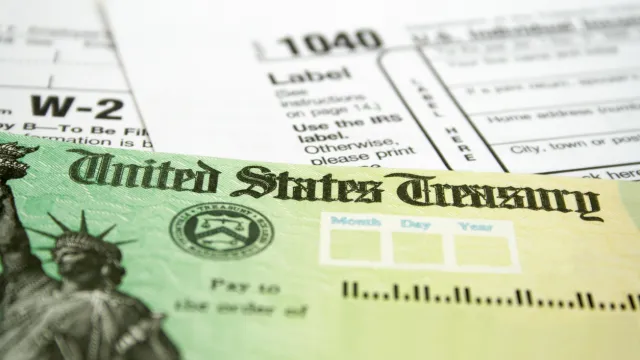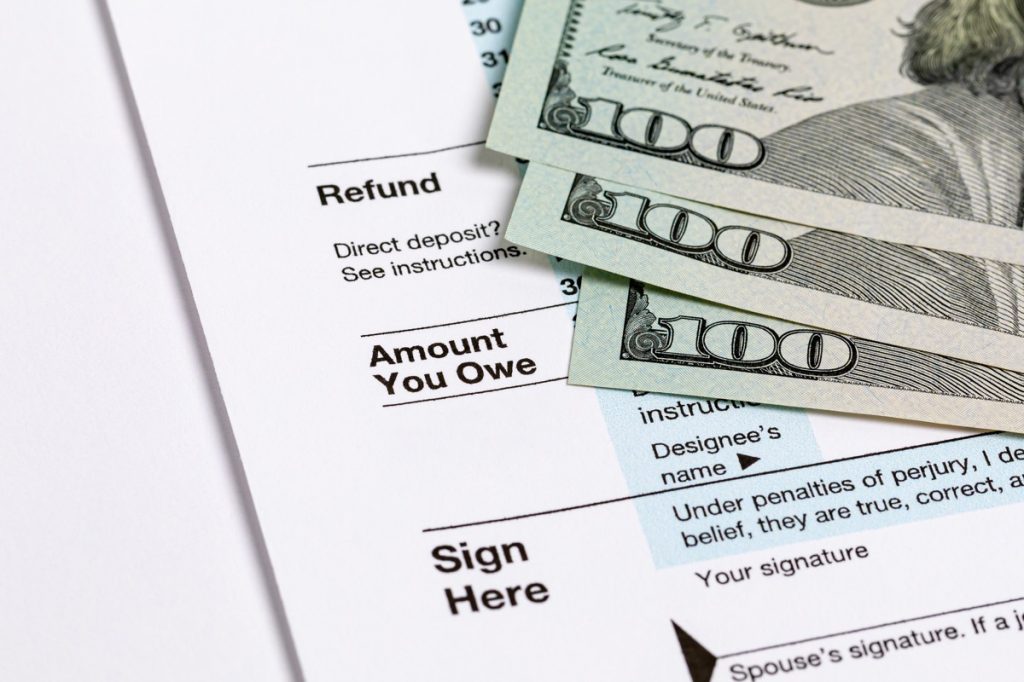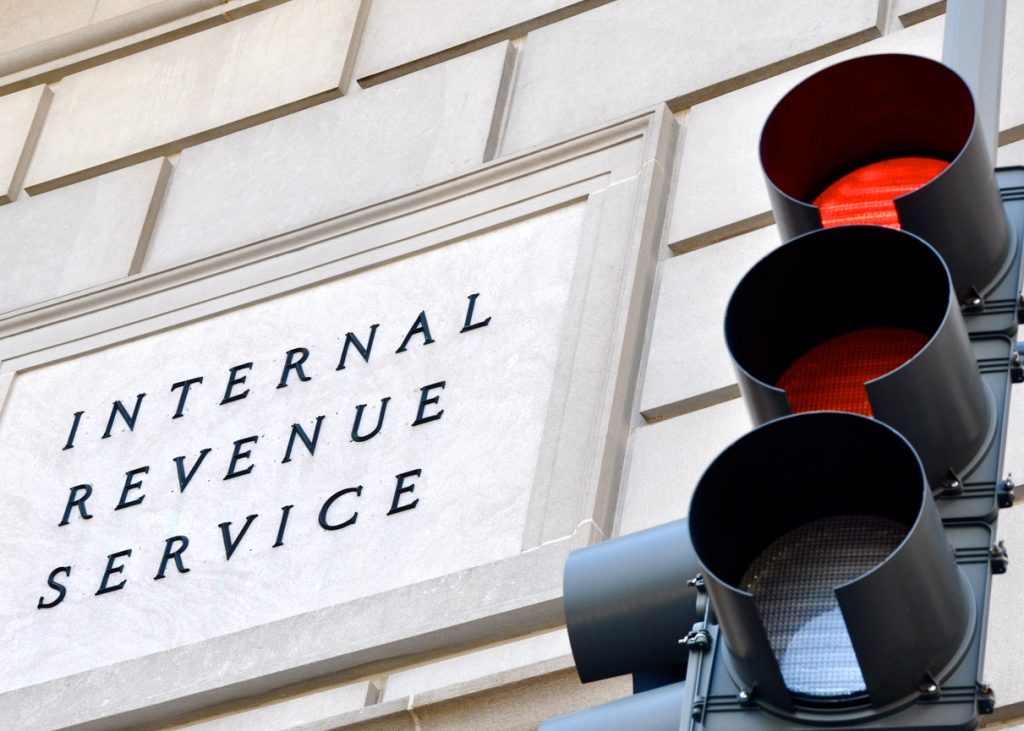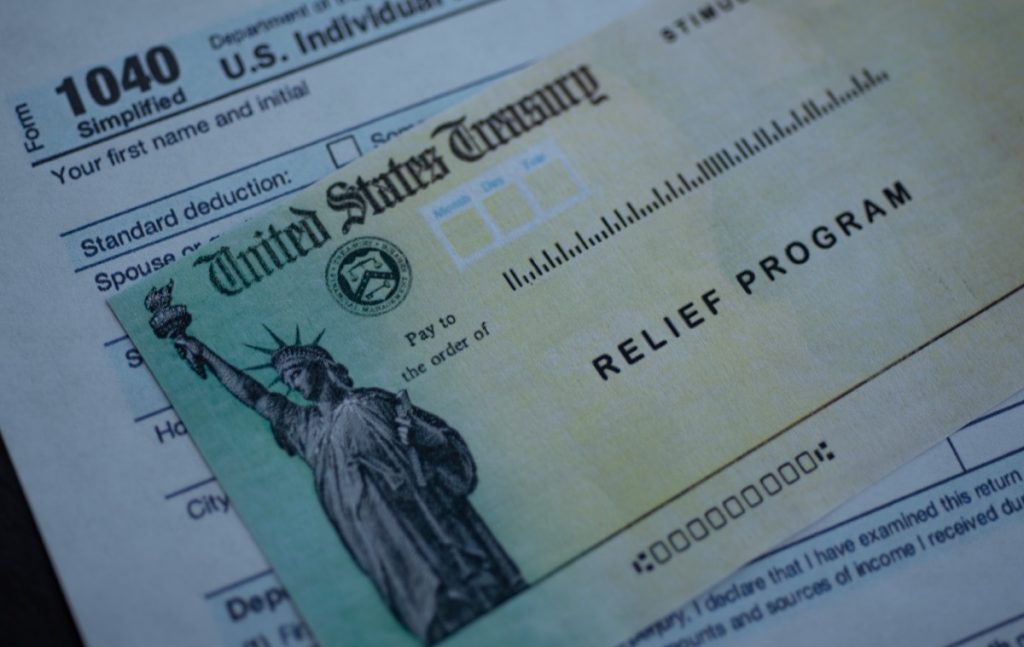IRS Issues Final Reminder for Nearly 1 Million Tax Refunds: “Time Is Running Out”

With less than a month to go before the April deadline, many taxpayers are putting the finishing touches on their filings—if they haven’t sent them in already. Officials are trying to make the process easier, having recently put out an essential checklist of tax return mistakes that can be easy to make even if you have a simple income situation. But now, the Internal Revenue Service (IRS) has also issued a final reminder for nearly one million tax refunds that haven’t yet been claimed. Read on to see if there’s “money remaining on the table” for you.
RELATED: IRS Issues New Warning on Claiming Expenses: “Taxpayers Should Be Careful.”
A hard deadline is approaching for more than $1 billion in unclaimed tax refunds.

In a press release on March 25, the IRS announced that roughly 940,000 people had not yet claimed refunds from the 2020 tax year, totaling more than $1 billion. Overall, this translates to a national average median refund of $932 per person.
However, the agency explained that this year marks the end of the three-year window people have to claim refunds owed to them—after which they return to the government.
“There’s money remaining on the table for hundreds of thousands of people who haven’t filed 2020 tax returns,” IRS Commissioner Danny Werfel said in the press release. “We want taxpayers to claim these refunds, but time is running out for people who may have overlooked or forgotten about these refunds. There’s a May 17 deadline to file these returns so taxpayers should start soon to make sure they don’t miss out.”
RELATED: 10 Warnings About Using TurboTax, According to Experts.
The 2020 tax filing took place during some significant COVID-related interruptions.

While most refund deadlines align with the typical annual April date, the 2020 tax year was handled differently due to the ongoing effects of the COVID-19 pandemic. But even with the agency pushing the date back a little more than a month to account for the extenuating circumstances, they say some taxpayers may have failed to file entirely.
“People faced extremely unusual situations during the pandemic, which may have led some people to forget about a potential refund on their 2020 tax returns,” Werfel said in the statement. “People may have just overlooked these, including students, part-time workers, and others. Some people may not realize they may be owed a refund. We encourage people to review their files and start gathering records now, so they don’t run the risk of missing the May deadline.”
RELATED: Accountants Reveal “Surprise” Tax Errors That Cost You Big and How to Avoid Them.
There are other important credits that could also be owed from that year.

According to the IRS, taxpayers could be owed other money besides unclaimed refunds. In its press release, the agency says that some people with children are still eligible for the Earned Income Tax Credit (EITC), which could total as much as $6,660 for those who qualify based on their income.
This also isn’t the only credit the IRS has warned will expire this year. Earlier this month, the agency warned that anyone who hasn’t filed their 2020 taxes will soon be unable to claim the Recovery Rebate Credit.
While the agency clarified that most eligible people had already claimed it, there are still some who can apply if they “did not receive one or more Economic Impact Payments” issued during the COVID-19 pandemic, which could be as much as $1,200 per qualifying adult. The credit carries the same May 17 deadline as the upcoming lapse on refunds.
Here’s how you can get any refund that’s owed to you.

In its notice, the IRS specified that some people can still have their funds held if they haven’t filed subsequent tax returns for the 2021 or 2022 tax years. It also said that any owed refunds would be applied to any outstanding amounts owed to the agency or to offset other debts.
However, those who still need to file their 2020 returns can still do so. The agency says important documents—including that year’s W-2, 1099, and other forms—can be requested from banks and employers.
Taxpayers can also request a free wage and income transcript from the agency, which shows the data shared with the IRS that can be used to help someone file accurately. However, the agency suggests using other methods first since this can be a slower option.
- Source: IRS: Time running out to claim $1 billion in refunds for tax year 2020, taxpayers face May 17 deadline
- Source: IRS: Time is running out: IRS encourages eligible non-filers in 2020 to claim their Recovery Rebate Credit before May 17 deadline
- Source: U.S. Dept. of the Treasury: Economic Impact Payments
- Source: About Form 4506-T, Request for Transcript of Tax Return